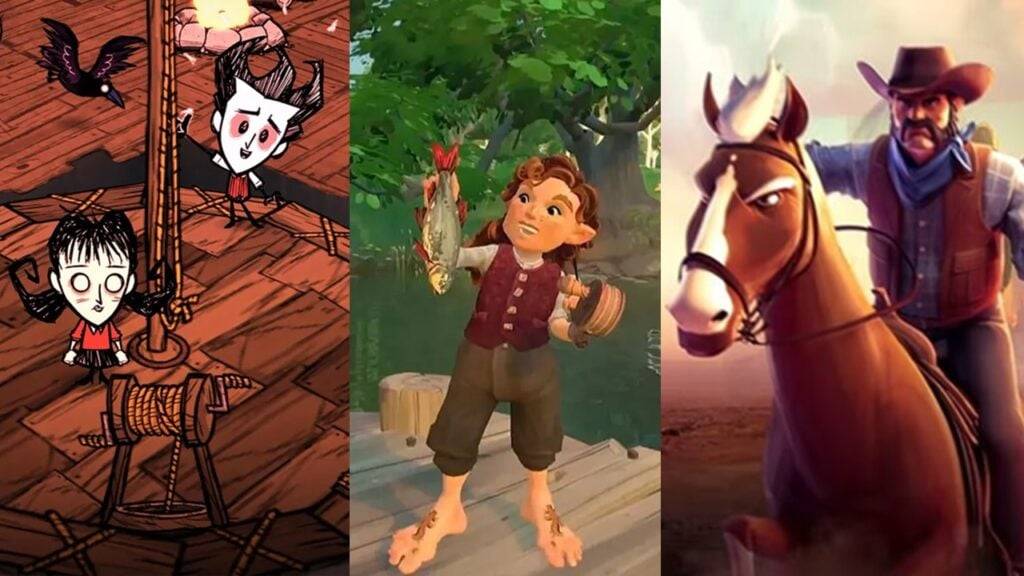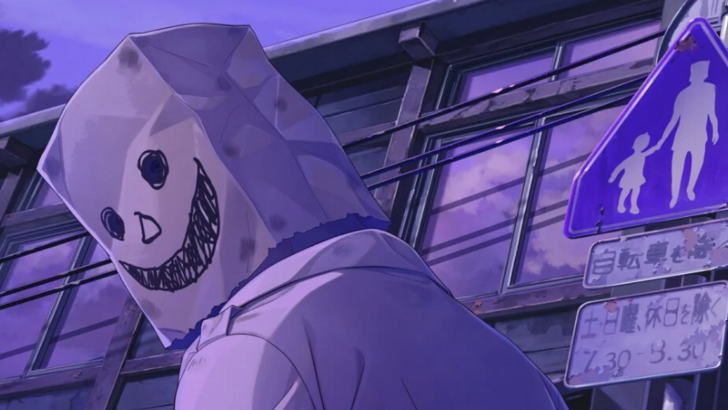
The previously teased “
Emio, the Smiling Man” mystery has been announced as the latest title in Nintendo's once dormant murder visual novel series,
Famicom Detective Club, which producer Sakamoto considers as a culmination of the entire series.
Emio, the Smiling Man Announced as Famicom Detective Club GameFamicom Detective Club Debuts New Murder Story After Three Decades
The original Famicom Detective Club games, The Missing Heir and The Girl Who Stands Behind, were released in the late 1980s. They allowed players to step into the shoes of a young man solving murder mysteries in the Japanese countryside. In this new installment, Emio – The Smiling Man: Famicom Detective Club, players will once again become assistant detectives, this time at the Utsugi Detective Agency, tasked with unraveling a series of murders linked to a notorious serial killer known as Emio, the Smiling Man.
As announced by Nintendo on July 17, the game is set to launch globally on August 29, 2024 for the Nintendo Switch and marks the first new Famicom Detective Club story in 35 years. It was teased the previous week through a cryptic trailer that showed a mysterious man wearing a trenchcoat and a paper bag over his head that had a smiley drawn on.
"In Emio – The Smiling Man: Famicom Detective Club, a student has been found dead in a chilling fashion, his head covered with a paper bag with an eerie smiling face drawn on it," the latest installment's synopsis reads. "This unsettling visage bears a striking resemblance to a recurring clue in a string of unsolved murders from 18 years ago, as well as Emio (the Smiling Man), a killer of urban legend who is said to grant his victims ‘a smile that will last forever.’"
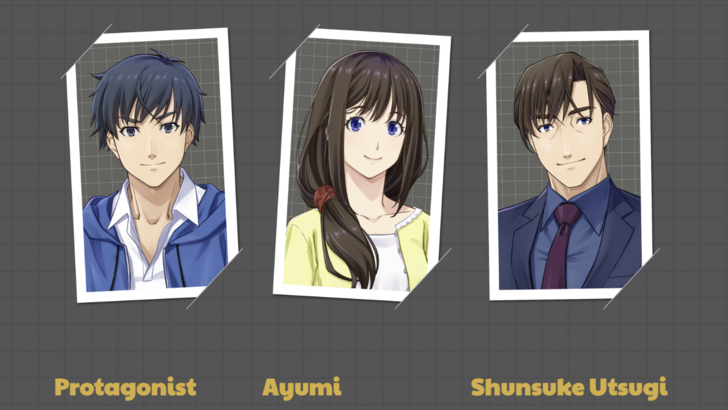
In this game, you must investigate the events that led to the
homicide of the junior high school student, Eisuke Sasaki, where clues hark back to
cold cases from the past. Interview the victim's classmates and others connected to the case to gather leads, and comb through crime scenes and locations of interest for clues.
Working alongside you on the search for the truth behind Emio, the Smiling Man, is Ayumi Tachibana, a fellow assistant detective known for her exceptional interrogation skills. Ayumi is a recurring character in the series who was introduced in the first game. Leading the charge of your unit is Shunsuke Utsugi, the director of the detective agency, who has worked on the same unsolved murders eighteen years ago. Shunsuke appears in the second installment of the series and takes in the game's orphaned protagonist as his assistant.
Fans Polarized Over Announcement
At the time Emio, the Smiling Man was cryptically teased by Nintendo, it quickly grew traction and gained interest among the gaming community as it was perceived as a drastically different flavor of Nintendo game. As opposed to the company's signature wholesome smile-bringing games, this smiling man was shown to be anything but the joy of life.
While speculation grew over the announcement, one fan on Twitter (X) had amazingly correctly predicted what the teaser was for. "Insane theory: Emio is actually the antagonist of a new, darker 3rd Famicom Detective Club game as a follow up [to] the remakes of the first two games on Switch," the fan wrote.
It seemed like a logical step, and they were right. While many fans of the Famicom Detective Club series celebrated the revival of their beloved murder mystery point-and-click game, others were not so enthused.
Some players have evidently not taken a liking to the newly announced installment, expressing their disinterest towards a visual novel game, on social media. One user humorously insinuated that some Nintendo fans certainly felt disappointed and raged after finding out they have to read. Another player replied and pointed out that these fans "were probably hoping emio would be a different [genre] like action horror or smth."
Famicom Detective Club Explores Different Mystery Themes
Series producer and writer Yoshio Sakamoto shared insights, via a recent YouTube video, on the creation of Emio – The Smiling Man: Famicom Detective Club. Recounting the inception of the Famicom Detective Club series, Sakomoto said that the first two games, The Missing Heir and The Girl Who Stands Behind, were intended to be played like a movie that you solve by yourself.
The Famicom Detective Club series has been praised for its engaging narratives and atmospheric storytelling. The original games, which were remade for the Nintendo Switch in 2021, have maintained a lasting impact on fans. Inspired by the positive reception to these remakes, Sakamoto felt motivated to create a brand-new entry in the series. "I knew we'd be able to make something good. So, I decided to do it," he stated in the video.
According to an old interview with the Wired, Sakamoto took inspiration from horror filmmaker, Dario Argento, whose use of mood-making music and quick cuts influenced Famicom Detective Club. The Girl Who Stands Behind was inspired by Argento's method of connecting music and images used in the murder mystery film Deep Red.
In the same interview, series composer Kenji Yamamoto recalled that he made The Girl Who Stands Behind's final scene sound as scary as possible, as Sakamoto had instructed him to. The composer used a technique wherein the volume of the game's audio drastically reaches the max level in the game's final scenes, replicating a sort of jump scare with the startling audio switch-up.
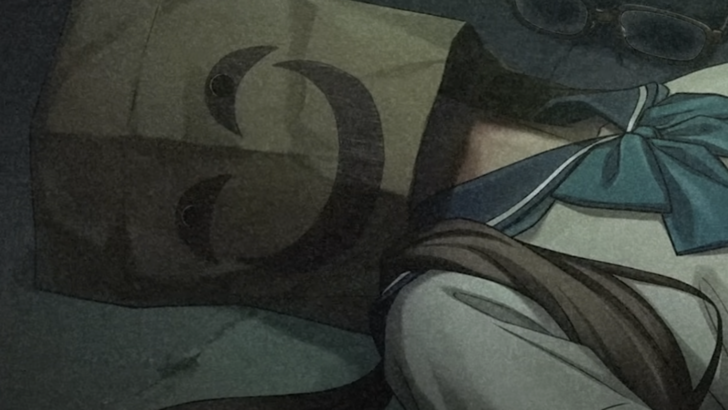
Emio, the Smiling Man is an urban legend created solely for the new Famicom Detective Club game. Sakomoto, in the recently posted YouTube video, said he wants players to experience a vivid journey grounded in the thrill of uncovering the truth behind an urban legend.
While The Smiling Man revolves around the theme of urban legends—often spooky stories and rumors about mysterious and perilous events—the previous installments in Nintendo’s Famicom Detective Club explored themes of superstitious sayings and ghost stories.
In The Missing Heir, you investigate the mysterious death of Kiku Ayashiro, a member of the affluent Ayashiro family that owns a huge plot of land, passed down from generation to generation, in Myoujin village. The village has an ominous saying that who is dead will return to kill anyone that attempts to steal the Ayashiro family's wealth. You soon discover a terrifying connection between this saying and the serial killings that take place in the game.
Meanwhile, as an up-and-coming detective in The Girl Who Stands Behind, you must find the culprit who took the life of an innocent girl, Yoko, and rattled her high school community. It soon emerges that Yoko was deep into an investigation of "The Tale of the Girl Who Stands Behind," a ghost story of a bloody girl that haunts the school.
A genuine product of rigorous brainstorming
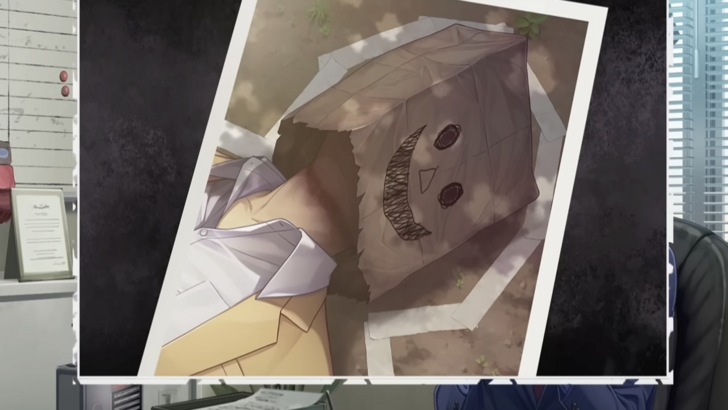
Speaking in an interview back in 2004, Sakamoto mentioned how he "really liked horror" around the time they were developing the first two Famicom games. "And I also really liked ghost stories about high school," he added. "Because of that, ideas blossomed, and I wanted to make a horror story set at an academy."
In multiple interviews, Sakamoto has spoken about the unrestricted freedom they had coming up with ideas for the Famicom Detective Club series. He said that Nintendo ran them through only the title and let them take the reins. "Whatever it was you came up with, they wouldn't say anything," he stated in one interview.
At the time the first two Famicom Detective Club games were initially released in Japan, they received positive reception from critics. Both Famicom games currently sit at a 74/100 Metacritic rating based on critic reviews.
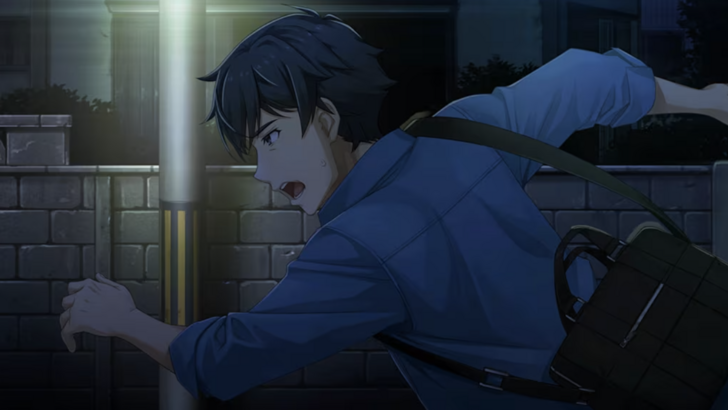
Emio — The Smiling Man is the "
culmination of everything my most trusted colleagues and I have learned and the ideas we’ve
accumulated from working on the previous games and their remakes," Sakomoto said. "It’s the result of a lot of deep, creative conversations and work with the intention to go all out on the screenplay and animations."
Moreover, it appears that Emio — The Smiling Man will contain a polarizing ending that the series producer hopes will be continually discussed among players "for a long time to come." The game’s script "cuts right to the heart of what I had in mind from the start, so the story’s ending may be divisive for some people," Sakamoto said.






 LATEST ARTICLES
LATEST ARTICLES 


